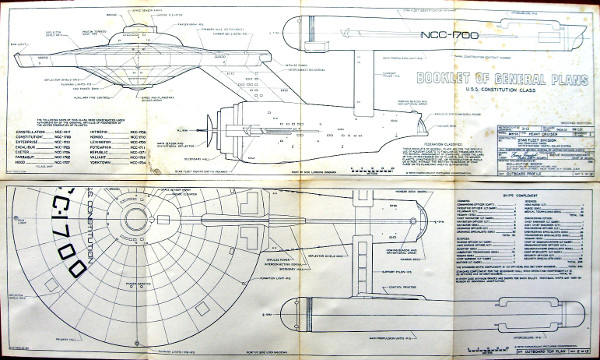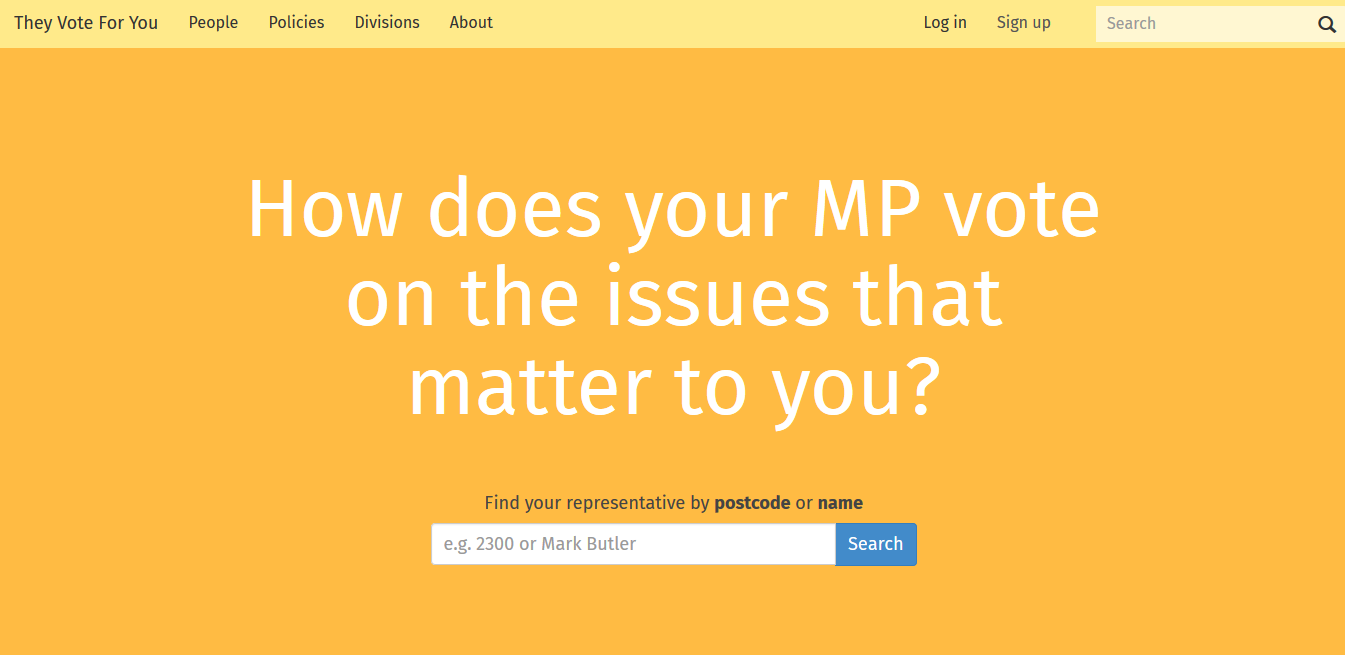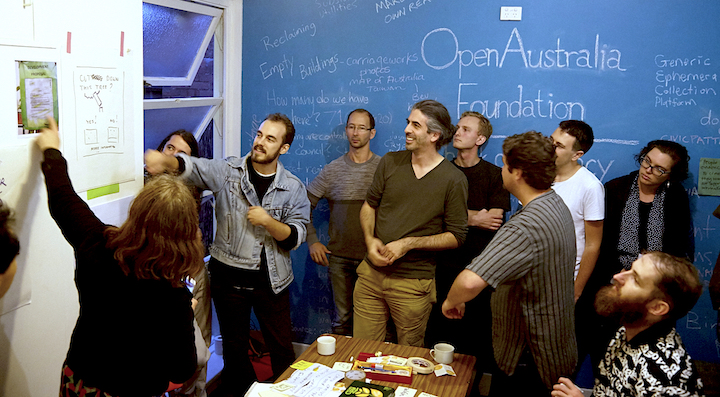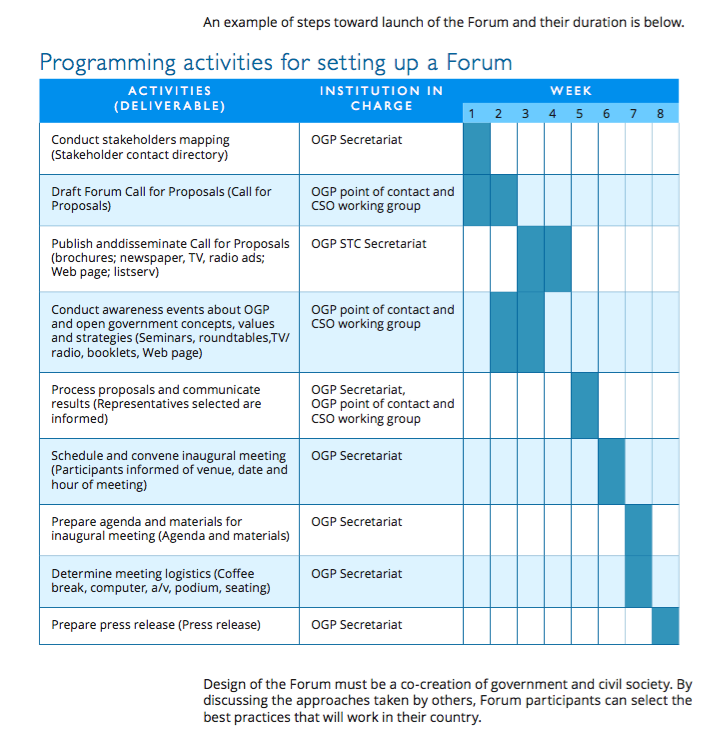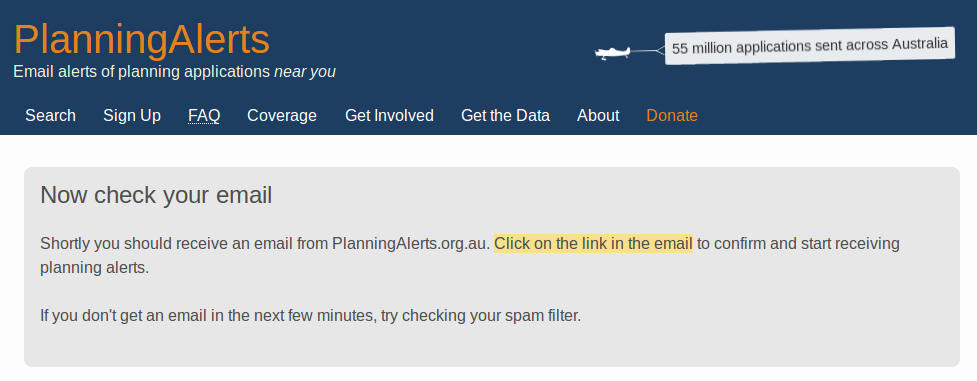‘Australia will ensure our information access laws, policies and practices are modern and appropriate for the digital information age.’ That’s the ambitious task that Attorney General’s Department took on with Open Government commitment 3.1 Information management and access laws for the 21st century, in Australia’s first Open Government National Action Plan.
Attorney General’s Department saw a chance to use a different approach to understanding this problem, and they started by asking people who use Freedom of Information and Archives about their experiences.
Attorney General’s Department staff held consultations with people inside Government, Civil Society Organisation members and people who access information through FOI and archives. Peter Timmins (AOGPN) and me (Kat Szuminska – AOGPN/OpenAustralia Foundation) met with them to reflect on experiences that people have with the current FOI and archives systems. By June 30 this year, all together, AGD had consulted with 32 government agencies, 17 civil society members and nine end users.
To bring real world experiences to the table I asked our valued administrators at Right To Know to share what they’ve seen when people make public freedom of information requests in Australia.
Here’s what they shared:
You must request documents, not information, with your Freedom of Information request
Citizens don’t think in terms of documents, bureaucracies, do. People don’t know what types of documents will have the information they want because they don’t work inside the agency they’re making a request to. They mostly don’t want the whole document—they just want some information. This rule confuse people and makes FOI more legalistic, bureaucratic, and resource intensive for agencies and requesters than need be.
FOI Officers are able to use this rule as a way to push back on requests they would otherwise fulfil if they had said they wanted ‘documents that include’ the information they want.
FOI Officers can actually just fulfil the information request as an administrative/information request, and we see the system working at it’s best when this occurs.
Here’s an example of an FOI officer refusing the request for clear reasons, but then providing the basic information the requester wanted anyway:
Document: https://www.righttoknow.org.au/request/3005/response/8446/attach/2/Jonathan%20Ref%20009%2017.pdf
Request: https://www.righttoknow.org.au/request/retention_period#incoming-8446
Here’s another example of a local council providing lots of information to help a requester:
https://www.righttoknow.org.au/request/description_and_purpose_of_works_2
Fees
More on fees. Big fees, little fees etc.
A big issue with fees is where massive, spurious fees are imposed for something that shouldn’t take long. Also fees of any kind being imposed to access docs with a clear public interest is bad
Imposing fees used to slow down requests and impose more process on people.
For instance, estimating a large fee and waiting for the applicant to ask that it be lowered stops the clock on the 30 day timelimit https://oaic.gov.au/freedom-of-information/foi-guidelines/part-3-processing-requests-for-access#ftnref44
- “it took 33 days from when I made a request to waive charges for a decision to be made.” https://www.righttoknow.org.au/request/mygov_privacy_impact_assessment#comment-527
Requests for small amounts, e.g. $15, seem counter intuitive. The cost of administering the small payments if often is more than the amount charged for both agencies and requesters. When fees like this seem arbitrary they kill trust in the process and the good will of FOI officers.
At the state jurisdictions the imposition of fees and forms is the major reason requests are cut short.
On the other hand, many FOI Officers make their own public interest assessment and waive fees. Once again, this is the system working at it’s best. People should be supported in making public interest information public, not charged. Where charges are imposed on public interest requests, income and wealth shape people’s ability to help our government agencies increase their transparency.
Here’s a great example of an officer waiving fees:
https://www.righttoknow.org.au/request/point_bolingbroke_and_ardrossan#incoming-6379
Often the person making the request is more of an expert in the topic than the FOI officer. Accordingly they often know more efficient methods to extract the information they need from the standard systems used by the agency. A more collaborative approach would promote these knowledge exchanges to extract information from government systems more efficiently. In situations where the officer ignores advice from the requester, imposed fees often seem absurd or obstructive.
Forms
Like the ‘documents, not information’ rule, FOI request forms seems to purely benefit agencies and deter people from making requests.
We see lots of requests ending when forms and fees are imposed.
Agencies impose forms when there’s no clear reason to, often going against their Act and Information Commissioner recommendations.
These forms are mostly poorly designed and request information not required by the Act for a request to be processed. This creates a bad experience and deters requesters.
Like small fees, requiring people to fill out forms with information they’ve just emailed the agency seems arbitrary and destories good will between the requester and the FOI officer.
Here’s some examples:
NSW Police requiring forms where the GIPA Act says you don’t need them:
https://www.righttoknow.org.au/request/latest_staff_training_manuals_fo
NT Department of Justice requiring forms against their Act and advice from their Information Commissioner:
https://www.righttoknow.org.au/request/list_of_information_requests_to#incoming-8732
Legalistic culture that intimidates people out of requesting
Inconsistent/nonexistent disclosure log practice
Initially under 2010 reforms many agencies were placing full copies documents on their disclosure log but by 2013 this was ceased by several agencies including a decision of the Executive Board of the Attorney General’s Department to “reduce resources spent on preparing documents for publication”. Other agencies have interpreted the OAIC guidance on disclosure logs which includes a template to be followed in a way that reduces the usability for example the ACCC merely publishes each release labeled with a internal code that doesn’t suggest what the FOI request regards.
At the same time in 2014 the Department of Immigration and Border Protection began increasing the number of documents placed online such that the vast majority are now available.
Cumbersome and expensive arbitrary payment methods
No option to pay by Credit Card or Electronic Funds Transfer from many large agencies despite fact that charges could be placed in the Consolidated Revenue Fund centrally
OAIC doesn’t come into bat for people
Shouldn’t they be making sure agencies that clearly don’t comply with the spirit and letter of the Act are made to comply? e.g. Department of Human Services, Australian Tax Office, Department of Immigration and Border Protection
Read more about experiences with RightToKnow, and some of the work that the OpenAustralia Foundation does to help people get more, and expect more, from FOI.
What next?
The Government recently published their Mid-term self assessment on OGP including this update:
..the Attorney-General’s Department consulted with government and non-government stakeholders, they held a workshop in conjunction with the Department of Human Services Design Hub. The aim of the workshop was for AGD to present its findings of the initial consultation (the discovery phase) and for government, non-government and civil society stakeholders to come together to develop and co-design reform options to make access to, and management of, government information easier in the 21st century.
I participated in this workshop, and was asked not to share content from this event. If not before, I’d expect to see an update that includes a round up at the next meeting of the Open Government Forum in October.
Updates about this reform and find out more about how Australia’s Open Government National Action Plan is going at PM&C’s OGP Dashboard
